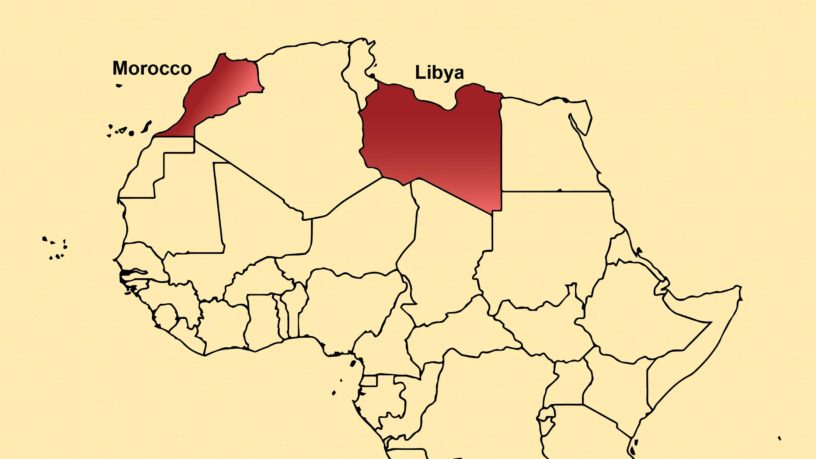By Lynette George
Morocco was devastated by its strongest earthquake in a century on Sept. 8, and just three days later, an intense flood washed through Derna, a city on the Eastern side of Libya, wreaking havoc and reportedly claiming over 11,300 lives as of Sept. 18.
In light of this news, many universities have come forward with public statements in support of their students and staff. The University of Toronto published a message to their community on Sept. 12—the day after the floods hit Libya—extending sympathy and aid for those impacted. Toronto Metropolitan University (TMU) has chosen a different route—silence.
“I’m not surprised,” said third-year international economics and finance student Taqwa Hadia. “It’s come to the point where it’s almost useless speaking about [the university].”
According to Hadia, who was born and raised in Libya, the Arab community on campus no longer anticipates support from the university. Instead, they’ve started relying on each other.
“It’s just devastating to not even see a statement, you know”
“As soon as the tragedy happened in Libya, the Muslim community and the Arab community in Toronto took immediate action,” she said. “It makes you feel like people are here for you and they’re going to reach out for you when there’s loss.”
For Sham Al Mukdad, the president of TMU’s Arab Student Association (ASA) and fourth-year language and intercultural relations student, supporting the community has always been a pivotal part of what the organization stands for. Within days of the tragedies, she and her team had already worked together to start a fundraiser at TMU. According to Al Mukdad, the university’s silence is heartbreaking.
“It’s just devastating to not even see a statement,” said Al Mukdad. “To me, it almost feels like whatever is trending, whatever is hot, whatever is covered greatly in the news, that’s what [the university] will talk about. It’s disappointing to see them look at people like numbers and not humans.”
Even when statements have been made by the university, they’ve been few and far between or have been posted much later. Some students have noticed that TMU has been notably slower than other universities to issue statements of support when global tragedies arise.
In the past year, TMU has only put out two statements regarding international tragedies. In February, TMU released a statement one week after the earthquakes in Syria and Türkiye. Prior to that, the last statement issued was in support of Ukraine, a year and a half ago.
“It makes me feel like less of a person when [the university is] giving 100 per cent of their attention to one issue or one group of people”
In an emailed statement to The Eyeopener, the university said, “Toronto Metropolitan University cares deeply about all of its students. Given the recent and devastating events in Morocco and Libya, community members with loved ones and close connections to these regions are especially top of mind.”
The university added that the International Student Services team is providing those from either country or who have family members there, support and how to access them.
Katty Alhayek, an assistant professional communications professor, said the prevalence of visible support for Turkish and Syrian communities may come from the fact that they have larger communities in Toronto and at the university.
“There is a larger visibility [for their statement], in comparison with Libya and Morocco,” said Alhayek. “A statement is a symbolic gesture but even that was not done for Libya and Morocco.”
According to Hadia, these issues go beyond just one statement from the university. “When it comes to Arab voices, when it comes to Muslim voices, I feel like they’re hidden,” she said. “It makes me feel like less of a person when [the university is] giving 100 per cent of their attention to one issue or one group of people. It’s like picking sides.”
“A statement is a symbolic gesture but even that was not done for Libya and Morocco”
Al Mukdad believes a statement would mean a lot to the community. While speaking at a panel at the Sheldon and Tracy Levy Student Learning Centre last week, she found many students unaware of the recent disasters in Libya and Morocco. Along with the ASA, she will be tabling this week to educate more people about natural disasters while raising funds to provide food and shelter for those who have been impacted.
“We are always in the frontline to support people, so this fundraiser was a crucial part of what we stand for, our standards and values,” said Al Mukdad. “We don’t have much but at least we’re doing something.”
As TMU’s Arab community looks onward, the request is simple. “We just want to be heard,” said Hadia. “TMU should at least give us that.”










Leave a Reply